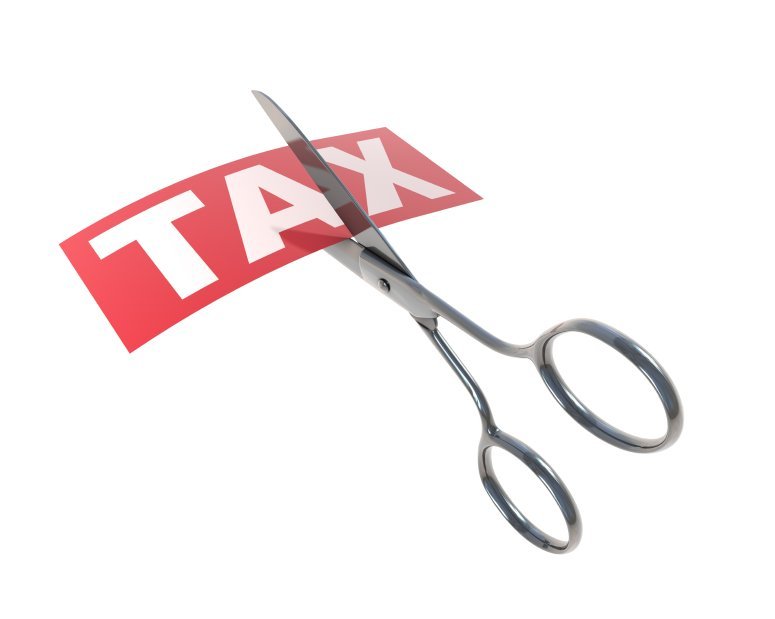Clearing Up Confusion on the TikTok Creator Fund Tax
There seems to be a lot confusion around the so-called TikTok Creator Fund Tax. Although there is no such animal, it does raise a lot of questions for content creators. Let's dig in.
Overview of TikTok Creator Fund
TikTok's Creator Fund is designed to compensate creators for the popularity of their content. TikTok, nor any government agency impose a tax on this Fund. That doesn't mean that there are no tax implications of the Fund.
It should be noted that TikTok is in the process of replacing their Creator Fund with the new Creativity Program.
In general terms, payments from the Creator Fund are income subject to tax regardless of the amount. Before we delve into the tax implications, let's discuss the Fund itself.
Eligibility
I have yet to be paid from the Creator Fund for any of my videos, but that is because I don't meet the eligibility requirements. Here are the requirements per TikTok.
To be eligible for the Creator Fund, certain requirements must be met. These include being 18 years or older, being a legal resident of the United States, meeting a minimum following threshold of 10K authentic followers, having accrued at least 100K authentic video views in the last 30 days, and posting original videos in accordance with our Community Guidelines. The Creator Fund is currently open to creators in the U.S., UK, Germany, Italy, France, and Spain.
Requirements to Receive Funds
If the total funds due to the creator are equal to or exceed $50.00 USD and the creator remains in compliance with the Creator Fund Terms, the creator may transfer the available funds to their Payment Account. All transfers to the Payment Account must be equal to or exceed $50.00 USD, unless TikTok expressly approves otherwise in its sole discretion.
Tax Return Considerations for Eligible Creators
As I stated before, the IRS considers all income subject to Federal taxes. Let's look at some of the details.
Federal Taxes on Creator's Earnings From the Fund
The IRS has a robust reporting system to ensure compliance. One of the most powerful is the issuance of 1099's. The IRS requires any payments to individuals in excess of $600 to be reported on from 1099-NEC. Payment providers like PayPal will issue form on 1099-K. 1099-K income can be subject to federal income tax, depending on the original source.
Just because you make under $600 or you don't receive a 1099 doesn't mean you don't have to report the income. Assuming that you are a content creator or influencer and are operating a business, income should be reported on Schedule C of your Form 1040. If you are not operating business (you should so that you can deduct expenses) then the income is reported on Form 1040 Schedule 1 as other income subject to self-employment tax.
Self-Employment Tax Implications on Creator Earnings From the Fund
Self-Employment tax is an tax in addition to income tax meant to replace Social Security and Medicare taxes. It is assessed against your self-employment income, which is the net of your business income and related business expenses. It is calculated at a rate of 15.3%, but you are allowed a deduction for half of of the self employment tax giving you a lower effective rate. You can read more about the self-employment tax and strategies to lower it in this article.

Business Income and Expenses for Eligible Creators
You must report ALL of your income on your business tax return. For self-employed individuals this on Schedule C. The good news is that you can deduct related business expenses against this self-employment tax to calculate your income taxes.
There are many things that qualify as business expenses that you can deduct. Make sure to seek professional advice from an accounting professional before tax season.
How Are Travel Expenses Handled During Tax Season?
The IRS determines what is a business expense with a two prong test. Are the expenses necessary and are the ordinary in your industry. Business travel absolutely qualifies, but beware. There are subtle nuances to watch out for.
Other Eligible Expenses
Don't forget all of the other potential deductions.
- Home Office Deduction
- Photography Equipment
- Editing Software
- Professional Services
- Office Supplies
- Computer and other equipment
Conclusion
In conclusion, while the TikTok Creator Fund tax may have caused some confusion and concern, it's essential to understand the facts and navigate this new territory with confidence. By familiarizing yourself with the guidelines and seeking professional tax advice if needed, you can ensure a smooth and successful experience as a TikTok creator. So go ahead, create amazing content, and let the tax worries fade away as you enjoy the rewards of your hard work. Happy TikToking!
